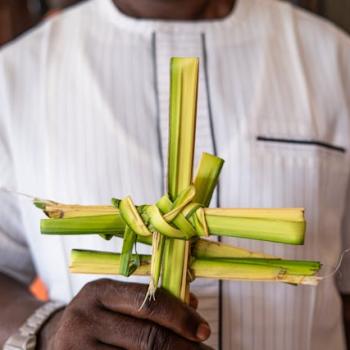I mentioned in an earlier article in this column that some modern Pagans have suggested that theology doesn't really have a place in modern Paganism, and that Paganism as a religion isn't really appropriate to the concerns of theology. It was mentioned on that earlier occasion, though, that ancient Pagans in Greece and Rome invented most of the vocabulary of theology—including the term itself. The reservations of some modern Pagans on theology are understandable, and the ways in which Christianity has dominated the discourse on theology for the past several millennia are certainly a concern and something of which any Pagans actively engaged in theological work should be aware. Nonetheless, it is an area that is not only historically relevant to Paganism and polytheism, but one that is quite necessary to confront for modern Pagans.
Not unlike the term "religion," it has been assumed far too often that "theology" is something that institutional religions dominate and determine. It is true (again!) that for the past several millennia, this has been the case. Yet, just because institutional religions have often been involved in something, and have asserted that they are the only valid authorities on particular topics, does not mean that such is the case. Institutional religions do not own the terms "religion" or "theology" any more than they own candles, incense, or the term and role "priest."
There has been an assumption that often goes along with this type of thinking that modern Paganism is a "spirituality" rather than a "religion.
However, over and above (and under and below!) all of this remains one factor that, in my understanding at least, has often been ignored: to talk at all of religion, and to engage in discussion at all of spirituality, one has to already have theology in order to do so. One cannot do religion or spirituality without one another, and likewise one cannot do either of those without theology. Though theology, in certain academic contexts, as well as within some religious frameworks, has often been done in a vacuum with no interest in practice or in the everyday lives and realities of humans living in the world (both within particular religions and outside of them/more widely), it is best done and most useful when it is grounded in the religious and spiritual contexts from which it not only arises, but which it uniquely gives the vocabulary and, in essence, the medium through which to engage with these realities and practices.
But what, precisely, is "theology," and how is it defined? It's a difficult and contentious issue, and many suggestions have been made on this over the centuries (as with "religion" and "spirituality"). Two definitions I've heard employed in the theological discourses of some major world religions have been "faith seeking understanding," and "the interaction between religion and culture." I think both of these are potentially useful. Yet, the first of these has the difficulty of using the term "faith" as an integral part of it, and while I have a preferred definition of that term that I think works well and that resonates with my own experiences, it is not the common definition. Thus, the waters are muddied somewhat if that overall definition of "theology" is employed. The second definition given above assumes that theology's usefulness is only in relation to cultural realities outside of religion, which I think is a false distinction, because religions arise within cultures and cultural contexts, and cannot be removed from them to a very great extent (despite the imperialistic and universalistic claims of some monotheistic religious juggernauts). I generally think, therefore, that there is a simpler and more literal manner in which to understand the term "theology," which is much more applicable to polytheism and forms of modern Paganism: theology is, simply, "words on/about gods." (Note, not words of/from gods...that's something else entirely!)





